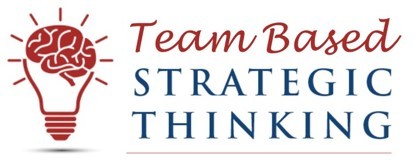You Really Don’t Have Ready Access
To The Data You Need To Make Decisions (#2 Article)
How does a senior executive build up the kind of knowledge they need to effectively run a team? One of the ways to attain this mastery is based on experience built up over what Malcolm Gladwell, in his book Outliers (Little, Brown & Co, 2008), calls the “10,000 Hours Rule.”
This rule holds that it takes 10,000 hours of deliberate practice to become world-class in a field.
Gladwell cites as one of his compelling examples how Microsoft was founded. As the story goes, Bill Gates and Paul Allen dropped out of college to form the company in 1975. Is it that simple: Drop out of college, start a company, and become a billionaire? Well, not quite!
Further study reveals that Gates and Allen had thousands of hours of programming practice prior to founding Microsoft. First, the two co-founders met at Lakeside, an elite private school in the Seattle area. The school raised $3,000 to purchase a computer terminal for the school’s computer club in 1968.
A computer terminal at a university was rare enough in 1968. Gates had access to a terminal in eighth grade. Gates and Allen quickly became addicted to programming.
The Gates family lived near the University of Washington. As a teenager, Gates fed his programming addiction by sneaking out of his parents’ home after bedtime to use the University’s computer.
Gates and Allen acquired their 10,000 hours through this and other clever teenage schemes. When the time came to launch Microsoft in 1975, the two were ready.
We can then compare this to the complex and chaotic domains. The leader does not have the correct answer and there will potentially be many correct answers.
In the complicated domain, the manager is looking at all the data to analyse. In the complex domain, there is a lot off data but due to the environment, it is not in context and therefore is not useful in this decision-making environment.
Experienced managers (10,000 hours) and leaders – in the absence of data – rely on their intuition to fill in the gaps. They apply the command and control structure that has served them well and their people look to them for direction which they have been programmed to provide based on years of internalising leadership competency training.
Kahneman devotes a full chapter in his seminal work Thinking, Fast and Slow on why we cannot rely on expert intuition in complex environments. In his collaboration with Gary Klein, a research psychologist famous for pioneering in the field of naturalistic decision-making, they come to this Golden Rule: Intuition cannot be trusted in the absence of stable regularities in the environment.
Do you have 10,000 hours to spare or do you need a leg-up now? Consider giving me a call if you don’t have 10,000 hours to spare and you know that your intuition isn’t what it could be.

